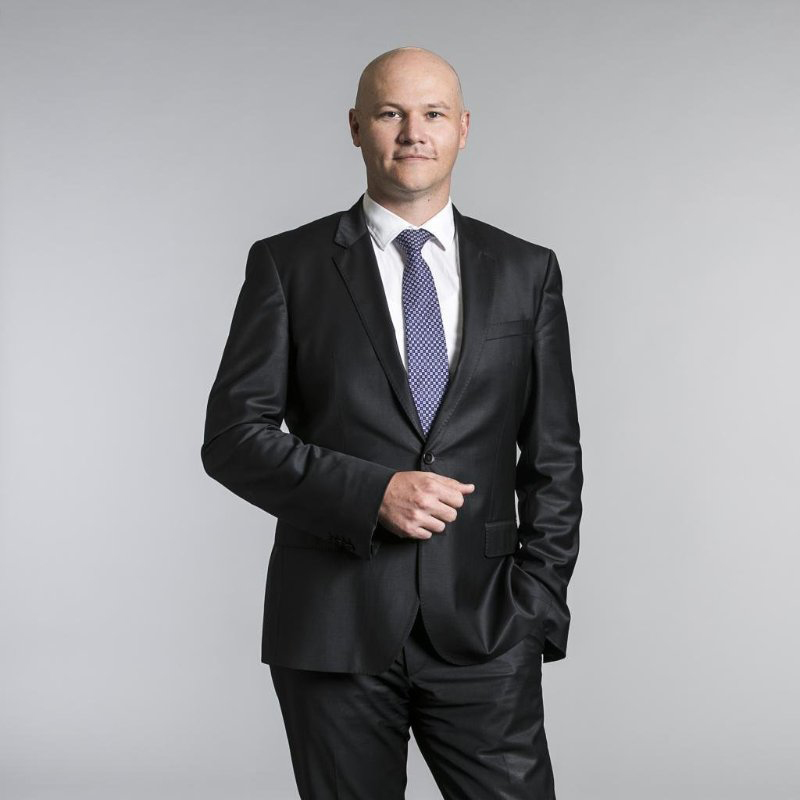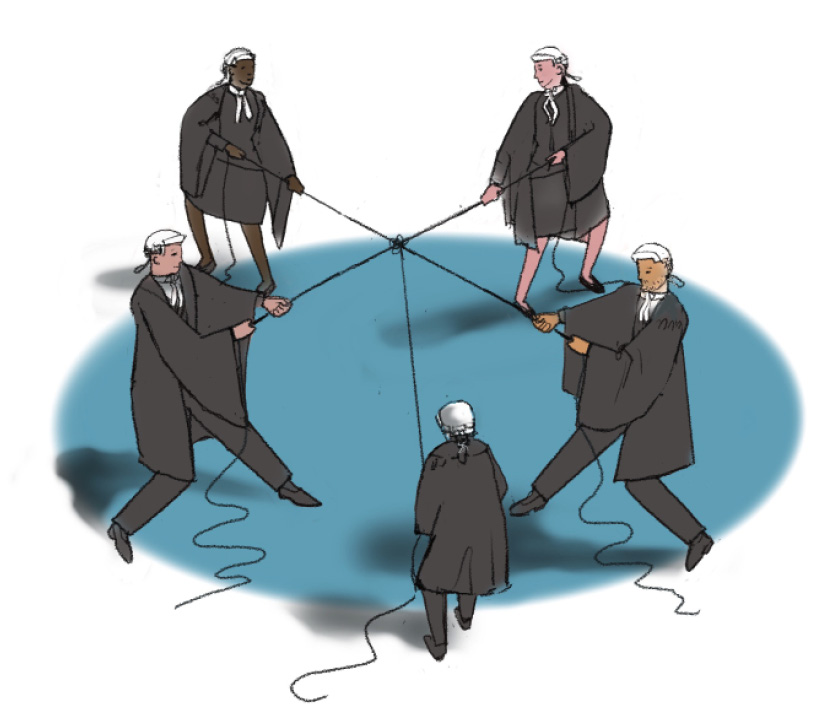Applications to stay competing class actions - Wigmans v AMP Ltd & Ors [2021] HCA 7

T his appeal concerned how a court should respond to competing applications to stay one or more open class representative proceedings commenced under Pt 10 of the Civil Procedure Act 2005 (NSW) (CPA) in relation to the same controversy. By majority, the High Court held that there is no ‘first-in-time’ rule or presumption that it is prima facie vexatious or oppressive to commence an action if an action is already pending in respect of the same controversy or that the first-in-time action necessarily will prevail.
Background
In April 2018, evidence provided to the Royal Commission into Misconduct in the Banking, Superannuation and Financial Services Industry gave rise to allegations that AMP Limited failed to disclose to the market that it had deliberately charged its customers fees for ongoing financial services that were not provided.
Five separate open class representative sets of proceedings
In relation to those allegations, five separate open class representative sets of proceedings were commenced within five weeks of each other on behalf of shareholders in AMP.
All of the representative parties sought compensation for loss caused by AMP’s alleged breach of the continuous disclosure obligations imposed on it by the Corporations Act 2001 (Cth) and the Australian Securities Exchange Listing Rules.
There was considerable overlap between the claims made in the various proceedings, although they were not identical.
The different proceedings were brought by a different lead plaintiff or applicant because different arrangements were made for the sponsorship of each proceeding by litigation funders or solicitors willing to act on a ‘no-win, no-fee’ basis.
|
Date proceedings commenced |
Forum |
Lead plaintiff/applicant |
|---|---|---|
|
9 May 2018 |
Supreme Court of New South Wales |
Ms Wigmans |
|
9 May 2018 |
Victorian Registry of the Federal Court |
Wileypark Pty Ltd |
|
25 May 2018 |
New South Wales Registry of the Federal Court |
Mr Georgiou |
|
6 June 2018 |
Victorian Registry of the Federal Court |
Fernbrook (Aust) Investments Pty Ltd |
|
7 June 2018 |
Victorian Registry of the Federal Court |
Komlotex Pty Ltd |
Initial transfer and consolidation
On 29 August 2018, on AMP’s application, the Federal Court transferred the four Federal Court proceedings to the Supreme Court of NSW.
Later, the Fernbrook proceeding was consolidated with the Komlotex proceeding.
Four applications for permanent stays
From 29 August 2018 to 9 November 2018, each of the remaining four lead plaintiffs (namely, Ms Wigmans, Wileypark, Mr Georgiou and Komlotex) applied to the Supreme Court for a stay of the proceedings in which the others were plaintiffs.
AMP was relevantly neutral as between the competing representative proceedings. It argued only that only a single proceeding ought to be permitted to continue.
First instance
On 23 May 2019, the primary judge (Ward CJ in Eq) ordered that the proceedings of Ms Wigmans, Wileypark and Mr Georgiou each be permanently stayed, essentially pursuant to ss 67 and 183 of the CPA and the inherent power of the Supreme Court.
Her Honour reached that conclusion after she applied a ‘multi-factorial’ approach which addressed the following elements:
- The competing funding proposals, costs estimates and net hypothetical return to members.
- The proposals for security.
- The nature and scope of the causes of action advanced (and relevant case theories).
- The size of the respective classes.
- The extent of any bookbuild.
- The experience of the legal practitioners (and funders, where applicable) and availability of resources.
- The state of progress of the proceedings.
- The conduct of the representative plaintiffs to date.

With respect to the first element above, her Honour considered that the ‘no-win, no-fee’ funding model offered by the litigation funder related to the Komlotex proceeding would likely offer the best return for group members.
As to security, similarly her Honour considered that the Komlotex proceeding offered preferable security ($5,000,000 would be paid into Court).
Notably, her Honour otherwise considered that the remaining factors noted above were neutral or of little weight.
Court of Appeal
On 8 October 2019, the Court of Appeal of the Supreme Court of NSW (Bell P, Macfarlan JA, Meagher JA, Payne JA and White JA) unanimously dismissed Ms Wigmans’ appeal. Ms Wigmans argued (as she had before the primary judge) that the Komlotex proceeding was an abuse of process since the Komlotex proceeding was commenced after Ms Wigmans’ proceeding had commenced.
High Court
On 10 March 2021, by a narrow 3:2 majority (Gageler, Gordon and Edelman JJ, with Kiefel CJ and Keane J dissenting) the High Court concluded that there was no error committed by the primary judge and dismissed Ms Wigmans’ appeal, with costs.
Ms Wigmans’ central argument was that the Court of Appeal erred by failing to apply a purported ‘first-in-time rule or presumption’ that it is prima facie vexatious and oppressive to commence an action if an action is already pending in respect of the same controversy.
The majority confirmed that the source of the Supreme Court’s power to grant a stay was found in s 67 of the CPA, which overlapped with the inherent power of the Supreme Court to stay a proceeding to prevent abuse of its processes (at [72]). The scope of that power was determined by considering the text and context of s 67 of the CPA, which did not specify specific criteria, although certain considerations were mandated by ss 56-58 (at [73]-[74]).
Their Honours concluded that: an analysis of Pt 6 of the CPA did not support the contention for any purported ‘first-in-time rule or presumption’; neither did an analysis of Pt 10 of the CPA, in respect of ‘Representative Proceedings in the Supreme Court’; and the CPA needed to be read as an ‘harmonious whole’ (at [75]-[77]).
Although, the majority confirmed that the time of filing is a relevant factor, their Honours emphasised that this factor (not rule or presumption) alone is not determinative as to which particular open representative proceeding is permitted to proceed while the remaining open representative proceeding/s is or are stayed (at [98]). Their Honours went so far as to say that a first-in-time rule or presumption would be ‘unworkable’ and lead to an ‘ugly rush’ to court (at [86]).
Ultimately, the majority identified the following considerations relevant to the exercise of the power to grant a stay (at [106]-[112]):
- Multiplicity of proceedings is not to be encouraged and might tend to obstruct or harm the administration of justice.
- As noted above, a first-in-time consideration is a relevant factor and ‘the greater the gap in time between commencement of the sets of representative proceedings perhaps the stronger the case for a stay of the subsequent set of proceedings, all other matters being equal’. However, this factor had little weight in the present matter because all five sets of proceedings were commenced within five weeks of each other.
- Facts and matters arising after the commencement of proceedings such as the degree of expedition with which respective parties have approached the proceeding are likely to be relevant.
- An exhaustive list of factors which might be relevant cannot be made. However, it is necessary for the court to determine, by reference to all relevant considerations, which proceeding going ahead would be in the ‘best interests of the group members’. Accordingly, although litigation funding arrangements are not a mandatory consideration pursuant to s 67 of the CPA, such arrangements are not irrelevant and there is no reason to exclude those considerations when exercising the power under s 67 to stay one or more open representative proceedings with respect to the same controversy.
With respect to future cases, in closing, the majority noted (at [119]) that ‘a possible approach’ in order to determine which open class representative proceeding ought to be permitted to continue exclusively (while any remaining open class representative proceeding/s be or are stayed) could be for the court to appoint a ‘special referee to enquire into the litigation funding arrangements’ about which, together with other issues, the primary judge had been required to analyse and make assumptions in the present case.
In dissent, Kiefel CJ and Keane J would have allowed the appeal on the basis that the primary judge and the Court of Appeal erred in failing to give effect to what their Honours described as ‘the prima facie entitlement’ of Ms Wigmans to insist upon the determination of her proceedings. Their Honours said that the proceedings brought later in time offered ‘no legitimate juridical advantage’ to group members or to the defendant (at [16]).